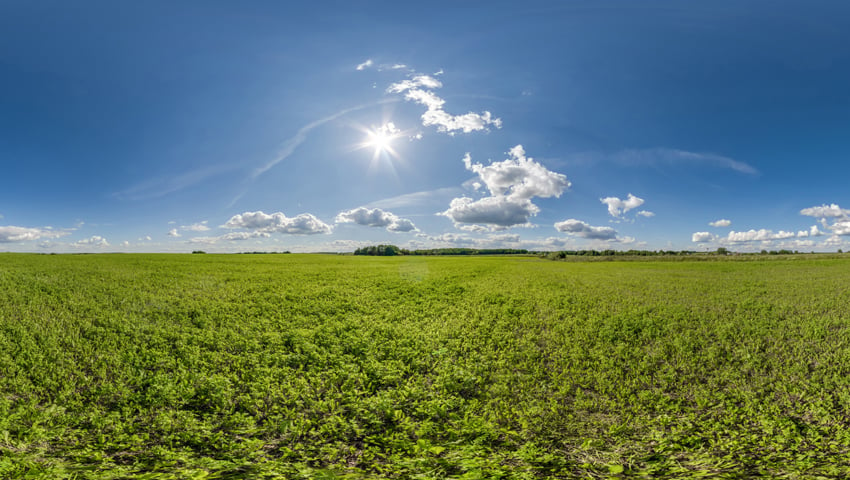Soaring land prices, land grabs, and carbon schemes are creating an unprecedented ‘land squeeze’, threatening farmers and food production, reveals a comprehensive new report today by the International Panel of Experts on Sustainable Food Systems (IPES-Food).
The report comes as land issues rise up the global agenda – with the World Bank holding a conference on ‘Securing Land Tenure and Access for Climate Action’ in Washington DC this week, a World Bank report on net-zero in food systems calling for measures to reduce the conversion of forests to croplands last week, and as Brazil launches an agrarian reform policy ‘Terra da Gente’ to allocate land for 295,000 families by 2026.
The study exposes the alarming escalation of land grabbing in various forms, including through ‘green grabs’, opaque financial instruments and speculation, rapid resource extraction, and intensive export crop production. Land around twice the size of Germany has been snatched up in transnational deals worldwide since 2000.
Major new pressures are emerging from ‘green grabs’ for carbon and biodiversity offset projects, conservation initiatives, and clean fuels, the report highlights. Huge swathes of farmland are being acquired by governments and corporations for these ‘green grabs’ – which now account for 20% of large-scale land deals – despite little evidence of climate benefits. Governments’ pledges for land-based carbon removals alone add up to almost 1.2 billion hectares, equivalent to total global cropland. Carbon offset markets are expected to quadruple in the next 7 years.
This global trend of land grabs and green grabs is particularly affecting sub-Saharan Africa and Latin America, while land inequality is growing fastest in Central-Eastern Europe, North and Latin America, and South Asia. Shockingly, 70% of the world’s farmland is now controlled by just 1% of the world’s largest farms.
As demand for land continues unchecked, the panel of experts says the ‘land squeeze’ is inflaming land inequality and making small and medium scale food production increasingly unviable – leading to farmer revolts, rural exodus, rural poverty and food insecurity. Farmers, peasants, and Indigenous peoples are losing their land (or forced to downsize), while young farmers face significant barriers in accessing land to farm.
The IPES-Food expert panel calls for action to:
- Halt green grabs and remove speculative investment from land markets
- Establish integrated governance for land, environment and food systems to ensure a just transition
- Support collective ownership and innovative financing for farmers to access land
- Forge a new deal for farmers and rural areas, and a new generation of land and agrarian reforms
Susan Chomba, IPES-Food expert, Kenya, said, “Land isn’t just dirt beneath our feet, it’s the bedrock of our food systems keeping us all fed. Yet we’re seeing soaring land prices and grabs driving an unprecedented ‘land squeeze’, accelerating inequality and threatening food production.
“The rush for dubious carbon projects, tree planting schemes, clean fuels, and speculative buying is displacing small-scale farmers and Indigenous Peoples. In Africa, powerful governments, polluting fossil fuel companies, and big conservation groups are elbowing their way onto our land under the veneer of green goals, directly threatening the very communities bearing the brunt of climate change.”
Nettie Wiebe, IPES-Food expert, Canada, said, “Imagine trying to start a farm when 70% of farmland is already controlled by just 1% of the largest farms – and when land prices have risen for 20 years in a row, like in North America. That’s the stark reality young farmers face today. Farmland is increasingly owned not by farmers but by speculators, pension funds, and big agribusinesses looking to cash in. Land prices have skyrocketed so high it’s becoming impossible to make a living from farming. This is reaching a tipping point – small and medium scale farming are simply being squeezed out.”
Key data points:
- Globally 1% of the world’s largest farms now control 70% of the world’s farmland
- In Latin America the smallest 55% of farms occupy just 3% of land
- Since 2000, an area twice the size of Germany has been acquired through transnational land deals
- Between 2008 and 2022, land prices nearly doubled globally – and tripled in Central-Eastern Europe
- In the UK, an influx of investment from pension funds and private wealth contributed to a doubling of farmland prices from 2010-2015
- North America has seen 20 consecutive years of land price increases: and 30 consecutive years of land price increases in Canada, with spikes of 12% in 2022 and another 8% in 2023. Land prices in the US agricultural heartlands of Iowa quadrupled between 2002-2020
- By 2023, 960 active funds specialised in food and agricultural assets managed over $150 billion
- More than half of land grabs are intended for water-intensive crop production, and 87% of land grabs occur in regions of high biodiversity
- Agricultural investment funds have risen ten-fold from 2005 to 2018, with US investors doubling their stakes in farmland since the pandemic
- Nearly 45% of all farmland investments in 2018, worth roughly $15 billion, came from pension funds and insurance companies. Between 2005-2017, pension, insurance and endowment funds invested around $45 billion in farmland
- ‘Green grabs’ now account for 20% of large-scale land deals. Governments’ pledges for land-based carbon removals alone add up to almost 1.2 billion hectares, equivalent to total global cropland. Carbon offset markets are expected to quadruple in the next 7 years
- Over half of government carbon removal pledges on land risk interfering with small-scale farmers & Indigenous Peoples
- Some 25 million hectares of land have been snapped up for carbon projects by a single ‘environmental asset creation’ firm, UAE-based ‘Blue Carbon’ through agreements with the governments of Kenya, Zimbabwe, Tanzania, Zambia, and Liberia
